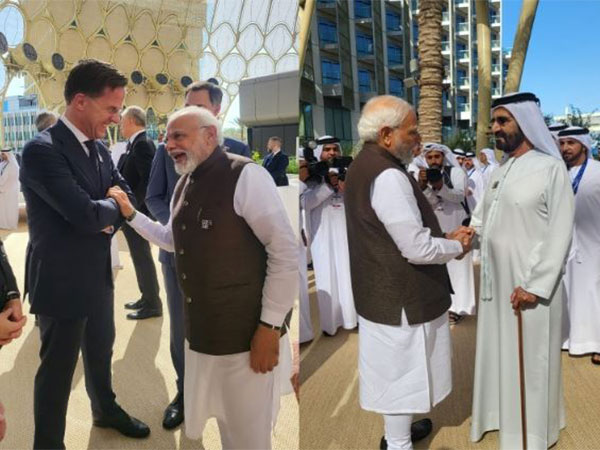Mark Rutte Poised to Become NATO Secretary-General
Dutch Prime Minister Mark Rutte is set to succeed Jens Stoltenberg as NATO Secretary-General. Known for his strong support of Ukraine and criticism of Russia, Rutte secured backing from Hungary and Slovakia, despite earlier opposition. He aims to maintain robust alliances within NATO amid ongoing geopolitical tensions.

Dutch Prime Minister Mark Rutte, a staunch ally of Kyiv and a critic of Russian President Vladimir Putin, will succeed Jens Stoltenberg as NATO chief, Dutch national broadcaster NOS reported on Tuesday, after Hungary and Slovakia backed him.
Speaking at a news conference alongside U.S. Secretary of State Antony Blinken in Washington, Stoltenberg neither confirmed nor denied the media report. "With the announcement of (Hungarian) Prime Minister (Viktor) Orban, I think it's obvious that we are very close to a conclusion ... to select the next secretary-general, and I think that's good news," he told reporters, while praising Rutte.
"I think Mark is a very strong candidate. He has a lot of experience as prime minister. He's a close friend and colleague, and I therefore strongly believe that very soon, the alliance will have decided on my successor," he said. "And that will be good for all of us, for NATO and also for me." NATO's next secretary-general will face the challenge of sustaining allies' support for Ukraine's fight against Russia's invasion, while guarding against any escalation that could draw the military alliance directly into a war with Moscow.
In the two years since Russia launched its full-scale invasion, Rutte has been one of the driving forces behind Europe's military support to Ukraine, stressing time and again what he said was the absolute need for a Russian battlefield defeat to secure peace in Europe. Under his recent leadership, the Netherlands has ramped up defence spending above the 2% threshold of GDP required of NATO members, providing F-16 fighter jets, artillery, drones and ammunition to Kyiv as well as investing heavily in its own military.
Rutte's support for Ukraine is underscored by his criticism of Russia and its President Vladimir Putin, as the Netherlands holds Russia accountable for the downing of passenger flight MH17 over eastern Ukraine in July 2014 - which killed all 298 passengers and crew, 196 of them from the Netherlands. Hours before the NOS report, Hungary and Slovakia had given their support to the candidacy of Rutte, clearing a crucial hurdle on his way to NATO's top job.
NATO takes decisions by consensus, so any candidate needs the support of all 32 allies. Only Romania, whose President Klaus Iohannis is also vying for the job, is still officially opposed to Rutte's candidacy. Hungary's backing followed a meeting Orban had with Stoltenberg last week, where the two sides agreed that Hungary would not block NATO decisions on providing support for Ukraine but has agreed that it would not be involved.
ORBAN DROPS OPPOSITION "PM Mark Rutte confirmed that he fully supports this deal and will continue to do so, should he become the next Secretary General of NATO," Orban wrote on the X social media platform.
"In light of his pledge, Hungary is ready to support PM Rutte's bid for NATO Secretary-General." Orban had earlier opposed Rutte's candidacy because he had expressed "problematic" opinions that included the idea that Hungary should leave the European Union.
Hungary has been at odds with other NATO countries over Orban's continued cultivation of close ties with Russia and refusal to send arms to Ukraine, with Budapest's foreign minister last month labelling plans to help the war-torn nation a "crazy mission." Turkey and Slovakia have also changed course on Rutte's bid, with Turkey saying it would support him in late April and Slovakia announcing its support earlier on Tuesday.
Slovakia, which borders Ukraine, had stressed the need for the next NATO chief to help deal with the protection of Slovak airspace, its President Peter Pellegrini said, after the previous Slovak government donated an S-300 system to Ukraine, and allies pulled out Patriot batteries that had been temporarily placed there. Stoltenberg's term will end on October 1, 10 years after taking office in 2014, just a few months after Russia annexed Crimea.
During his tenure, Stoltenberg oversaw NATO's shift from an alliance mainly engaged in crisis management missions in far-off places such as Afghanistan back to its roots of defence against Russia. Four countries have joined NATO since Stoltenberg took office - Montenegro, North Macedonia, Finland and Sweden.
By giving the top job to Rutte, the alliance will pass the opportunity to see a woman, Estonian Prime Minister Kaja Kallas, take the helm of NATO for the first time - something several members had lobbied for. Kallas, a candidate mainly touted by eastern European countries, was seen as too hawkish towards Russia by some western member states.
(This story has not been edited by Devdiscourse staff and is auto-generated from a syndicated feed.)
- READ MORE ON:
- Mark Rutte
- NATO
- Secretary-General
- Ukraine
- Russia
- Jens Stoltenberg
- Hungary
- Slovakia
- defence
- allies










